Fall 2022 newsletter
Megan Hamilton, Kenya
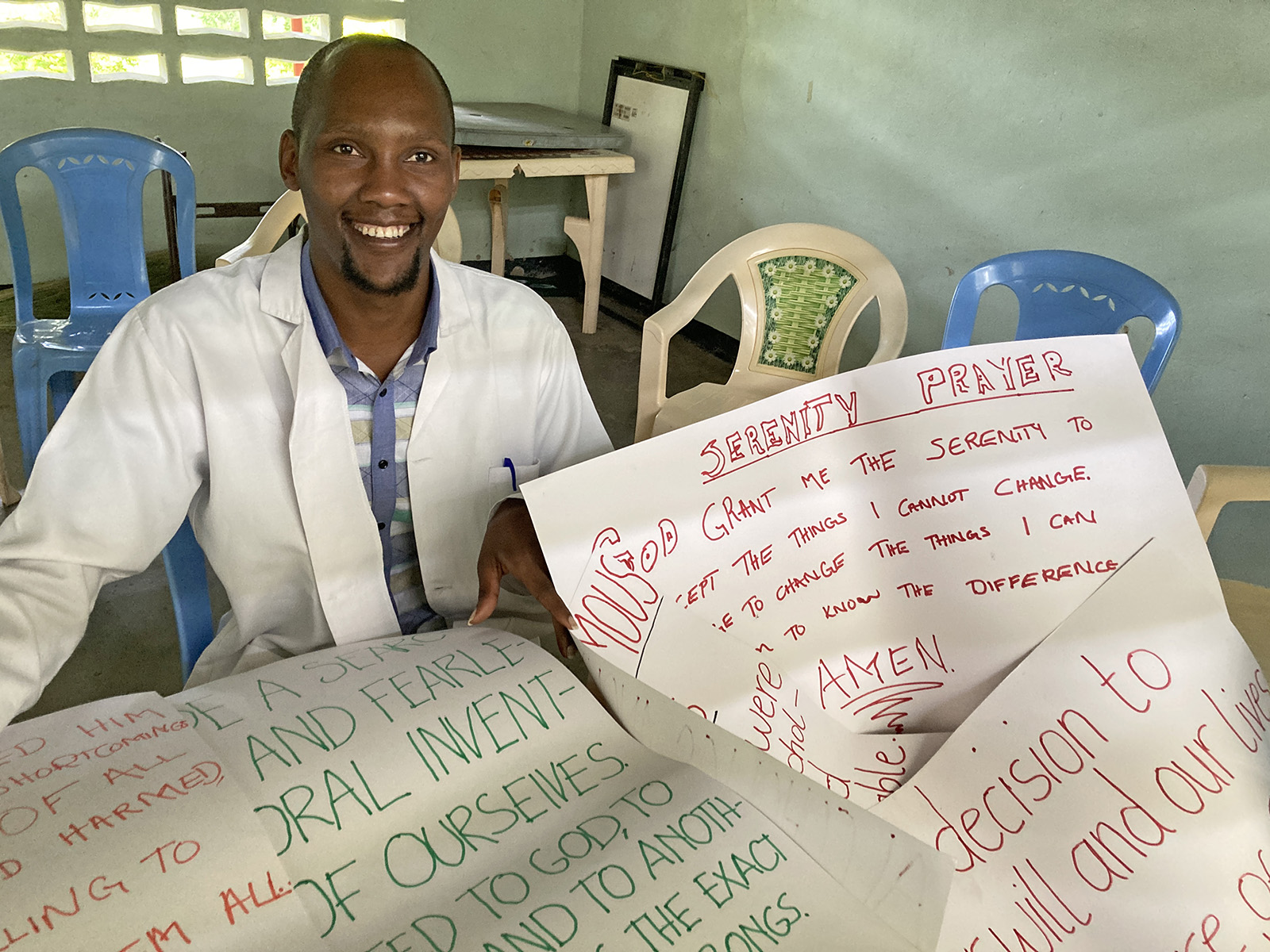
Psychologist Titus Ngugi helped patients make signs of AA readings to hang on the walls at Port Reitz.
A joke from my neighbor Nazo: A doctor who works in the mental health unit is told by a nurse that two patients may be ready to leave, he should examine them. So he creates a test. Drawing a door with a door knob on the wall, he then invites the patients in.
The first patient gets up and tries to open the door. “He isn’t ready,” says the nurse. “I think the other one might be.” The second patient is sitting in his chair laughing. “Why are you laughing?” the doctor wants to know. The patient, still laughing says “I have the key in my pocket!”
I wonder if I maybe know what that key is.
On Wednesday mornings I take an AA meeting to Port Reitz, or as it is more formally known, the Port Reitz Sub. County Hospital Mental Health & Substance Abuse Department. In America we would call it the dual-diagnosis unit. The patients I support have a mental health diagnosis in addition to their substance abuse disorder and addiction history.
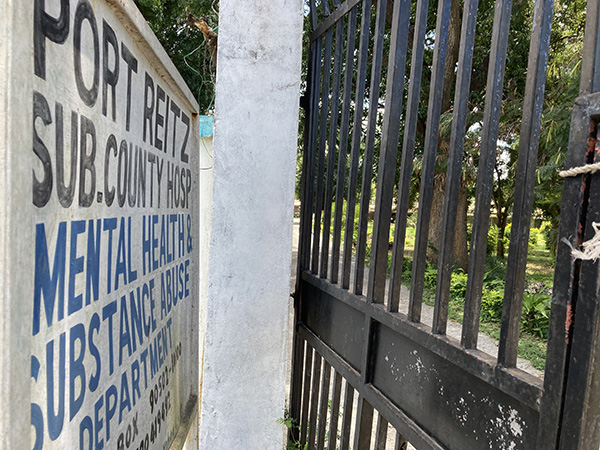
The entrance gate to the Port Reitz mental health residential treatment center.
It is a dusty, bumpy epic getting to Port Reitz. You go north and west off Mombasa Island, across a not-all-the-way-finished-but-opened-anyway bridge, past a different hospital, past towers of shipping containers, the cranes of the port. You go past the main Port Reitz hospital until, at the end of a dead-end street, you find it on the right. If you make it to Port Reitz Mental Health, you are quite literally at the end of the line. And for many patients, I bet it feels just like that.
With my friend, psychologist Titus Ngugi, who invited me here, there are many committed, educated, caring staff at Port Reitz. Titus, unit director Nana Ali Mohamed and occupational therapist Masila Muthembwa are enthusiastic and supportive, offering smart, well-thought-out suggestions for my ministry. Mental health and addiction recovery treatment are relatively new here. These folks care, and are committed to moving this critical work forward.
Not having the resources of the shiny First World, there are some One Flew Over the Cuckoo’s Nest vibes. The buildings are basic cement. Plastic chairs are cracked. Sometimes screams, moans or lewd language rush out of the buildings in the back. Uniformed security guards abound. The patients wear blue and white striped jump suits that have seen better days. Hems are fraying, seams are ripped, pant legs are stained. The patients themselves seem a bit frayed. At first I feel a little frayed too.
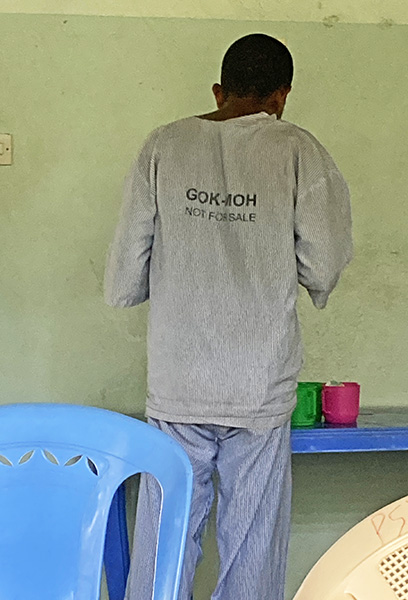
A patient has tea before the meeting.
For this, my seventh visit, I’ve spent time fretting (as usual) about formats, what AA stuff to read, and what I should say, and how do you get it all across when it is totally new to people who are heavily medicated and, yes, kinda “crazy.” And then I just do what I’ve done for years and … host a meeting. And just like it has happened for almost three decades now, I can feel that Higher Power in the room. And boy …, we so need that Power. These folks have been through it.
Some are heavily medicated and nod out. Some look like they aren’t sure where they are — in any sense: geographically, emotionally, spiritually, psychically. They run the spectrum. Quite a few seem pretty OK, some look sad and depressed, and the word devastated would seem appropriate for a few. A couple recognize me from last week and smile.
We read about the First Step. About what it means to be powerless over alcohol and drugs and have our lives become unmanageable. A lot of the guys are super into reading. Whether it is the Qur’an, the Bible or their Constitution, Kenyans believe there are answers in the printed word. The only copy we have is my little pocket version of AA’s Twelve Steps and Twelve Traditions, and guys squeeze in to see it. When we finish that chapter, they are almost ready to keep going, but we stop and share about it.
A youngish fellow with a skinny mustache, whom I recognize from last week, reckons his life was unmanageable, as he has come here after a suicide attempt. He paints a bleak picture of where he’s at now. A serious, older man is curious about the possibility of … maybe not drinking? One erudite fellow is excited to be at his second Port Reitz meeting, and on his new path toward sobriety. He thanks me.
To close the meeting we circle up, say the Serenity Prayer and then I semi-yell, getting things rolling as we slap our hands, still joined, up and down in rhythm to our chant “Keep coming back! It works if you work it! So work it, you’re worth it — stay sober!”
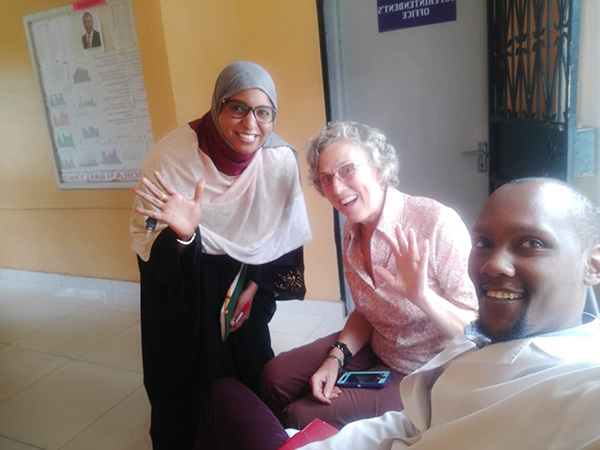
Nana Ali Mohamed (director of the unit), myself, and Titus, waiting to meet the director of the hospital.
As the guys start filing out, my mustachioed buddy still seems sad. I look him dead in the eye and say “You know what they told me when I first came in? They said don’t quit before the miracle happens.” And then a tiny miracle does happen. His eyes light up. He fist bumps my knuckles and repeats joyously, “Don’t quit before the miracle happens!”
Please consider making a special gift to Maryknoll Lay Missioners’ “Walk With Us” campaign, which raises money for the recruitment, training and ongoing support of all of us lay missioners. We can only “walk with” the people here because you are “walking with” us. Thanks to matching gifts, every $100 given to the campaign in effect becomes $150. To donate ONLINE, click the “Walk With Us” button below. Thank you so much for your generosity!

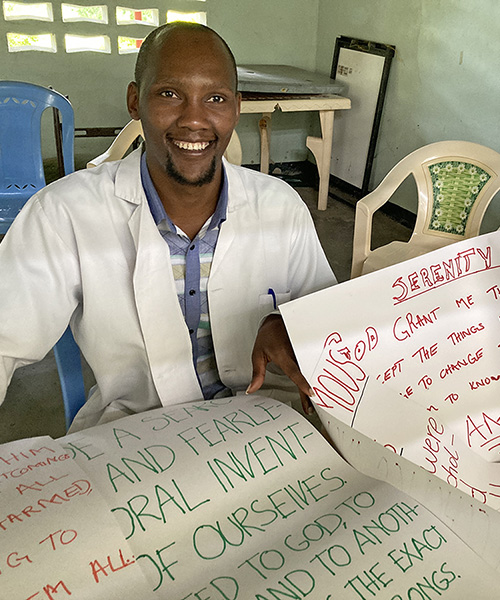

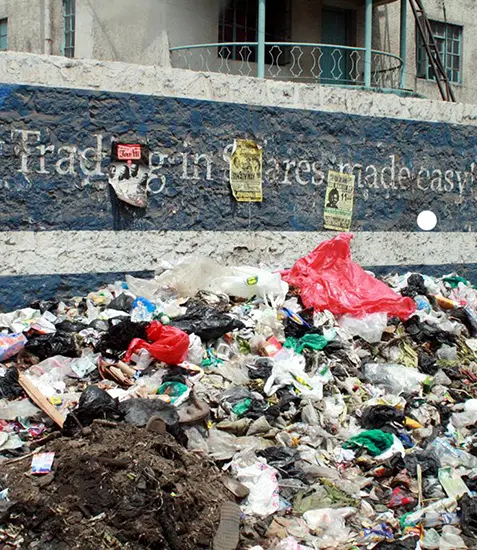
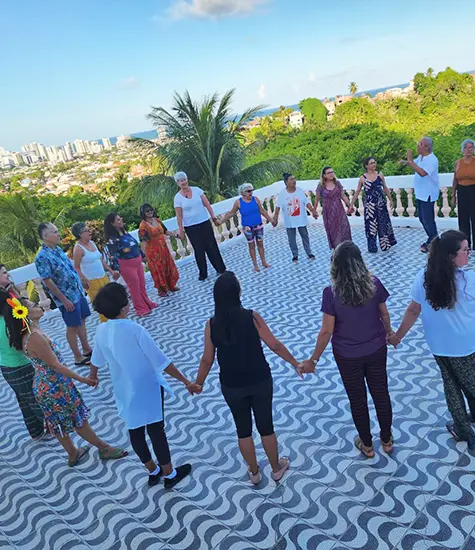
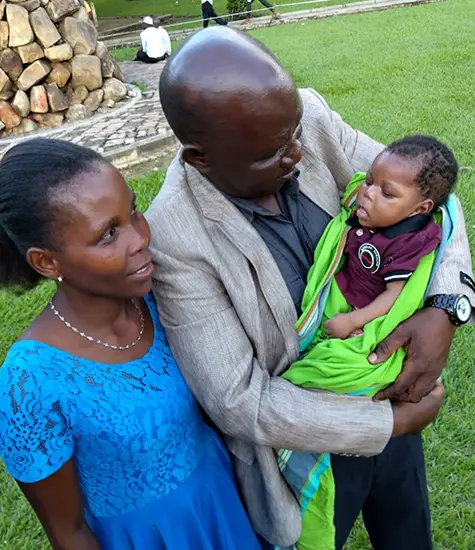




Fantastic Meghan! I’ve been there to Port Reitz hospitals when I worked in Mombasa from 2010-2018. We tried to do a bit of this work with Fr. Nicky in Bangladesh parish but didn’t make much progress. You have a mammoth task but it looks likes good colleagues to work with. The key is your smiles and enthusiasm that comes from love.
Meghan, you are exactly where you need to be! When Maryknoll talks about going to the marginalized, well I think you found them. And miracles will happen.
Always walking the walk. So honored to call you friend!